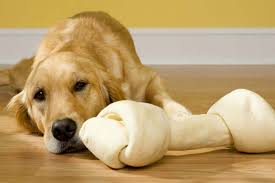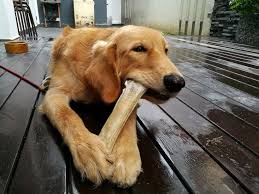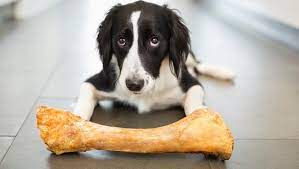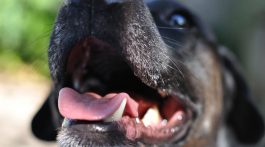Dog bones are a popular treat for many pet owners to give their furry friends. Not only do they provide a fun and satisfying chew for dogs, but they also help keep their teeth clean and strong. However, with so many different options on the market, it can be difficult to know which type of dog bone is the best for your pup. In this blog post, we will take a closer look at the different types of dog bones available, their benefits, and some tips on how to choose the right one for your dog.
Types of Dog Bones:
Introduction: Dog bones are a popular treat for many pet owners to give their furry friends. Not only do they provide a fun and satisfying chew for dogs. They also help keep their teeth clean and strong. However, with so many different options on the market, it can be difficult to know which type of dog bone is the best for your pup. In this blog post, we will take a closer look at the different types of dog bones available. The benefits, and some tips on how to choose the right one for your dog.
Types of Dog Bones:
- Traditional Beef Bones:
These bones are often large and can be smoked or raw, and they can provide a satisfying chew for dogs of all sizes. They are also a great source of calcium and other minerals, which can help keep your dog’s teeth and bones strong. - Nylon Bones:
Nylon bones are made from a durable and long-lasting material that can withstand even the most aggressive chewers. They also come in a variety of colours and shapes, making them a fun and interactive treat for dogs. However, nylon bones are not edible, so they should not be used as a replacement for a regular diet. - Antler Bones:
Antler bones are made from the antlers of deer, elk, and moose. They are considered to be a healthier alternative to traditional beef bones. Antler bones are also long-lasting and can provide a satisfying chew for dogs of all sizes. They are also a natural source of calcium and other minerals, which can help keep your dog’s teeth and bones strong. - Dental Chews:
Dental chews are specially designed to help keep your dog’s teeth clean and healthy. They come in a variety of shapes and sizes. They can be made from a variety of materials, such as rubber, nylon, or even real bacon. Dental chews can help to reduce plaque and tartar buildup. Plaque and tartar can lead to dental problems such as bad breath, tooth decay, and even tooth loss.

Choosing the Right Dog Bone:
- Size and Breed: For example, a small toy breed may not be able to handle a large beef bone, while a larger breed may quickly chew through a nylon bone. It is also important to consider your dog’s age. Older dogs may have weaker teeth and may require a softer chew.
- Chewing Habits: Consider your dog’s chewing habits and what type of bone will be most satisfying for them.
- Dental Issues and Special Diet: If your dog has any dental issues or is on a special diet, it is important to consult with your veterinarian before giving them any new type of chew.
Risks of Dog Bones:
- Splintering: Beef bones, for example, can splinter and cause harm to the dog’s digestive system. It’s important to always supervise your dog while they’re chewing on bones, and to take them away if they start to break into small pieces.
- Nutritional needs: Bones should not be the only source of calcium and other minerals in your dog’s diet. Consult with your vet to ensure that your dog is getting all the nutrients they need.
- Ethical Sourcing: Some bones are sourced from animals that were raised inhumanely or treated with antibiotics and hormones. As a pet owner, it’s important to choose bones that are sourced from responsible, ethical farms.

Conclusion:
Dog bones are a great way to provide your furry friend with a fun and satisfying chew. It also helps to keep their teeth clean and strong. However, with so many different options available, it is important to choose the right type of dog bone for your pup. Take into consideration their size, breed, and chewing habits. Whether you choose a traditional beef bone, a durable nylon bone, a natural antler bone or a dental chew, make sure you supervise your dog while they enjoy their new treat.




No Comment